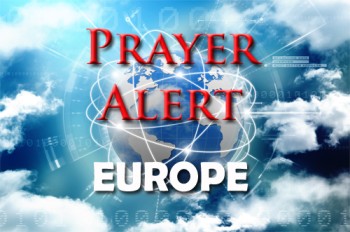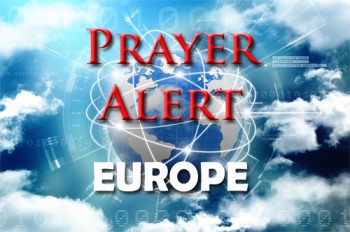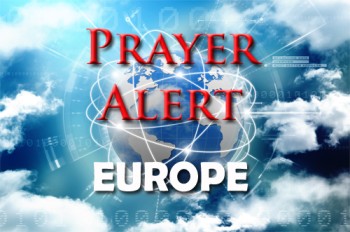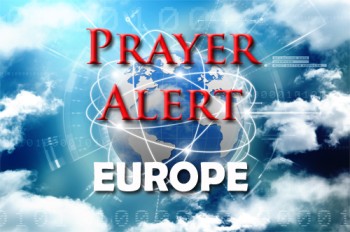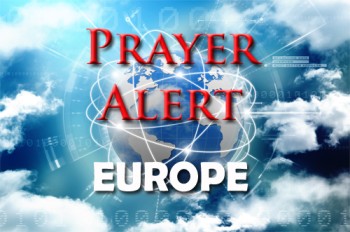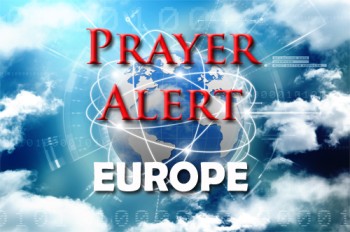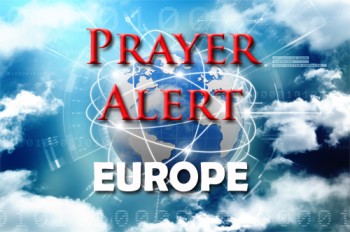Displaying items by tag: Europe
Black Sea becomes a war front
Ukrainian military officials said on 7 May that they had sunk another Russian warship in the Black Sea. The ship was a craft designed to transport and deploy troops to the shore. The strike was executed with Turkish drones, which Ukraine has relied on during the war. Just weeks after the Russian flagship Moskva missile cruiser was hit by Ukraine’s missiles and sunk, this Russian warship was left burning in the Black Sea. A reliable naval source verified that a Ukrainian Neptune anti-ship missile struck the vessel, with a large number of Russian aircraft circling overhead. Russia’s fleet is shrinking. See also
Russia’s and Ukraine’s mission fields
Christian missionaries in Russia have been referred to as ‘volunteers’ since 2016 after a law was passed that limits religious proselytising. Ukraine has become a launching pad for missionaries to Russia, where there is little or no religious freedom. A Ukrainian missionary wrote recently, ‘Our church has formed a team to help with the different aspects of receiving refugees, among other related activities. On 1 March I went to a military installation in Chișinău, where refugee Indian medical students from Odessa were sheltering. Some students were thankful to see a pastor and pray with him. They have studied medicine in Odessa for six years, and had just two months to complete graduation when the war came and they had to leave. They want the war to end soon, and they can return to Ukraine to complete their studies.’
Russia trying to encircle Ukraine's east
Russia has removed forces from areas near Kyiv and is focusing on eastern Ukraine. The battle for Ukraine's old industrial heartland known as Donbas is likely to decide the fate of the Russian invasion. Pray for Ukraine and its allies to prevent Russia annexing Donbas and adjacent areas and claiming the territory as Putin did with Crimea in 2014. Russia’s attacks on the south have triggered a humanitarian catastrophe at the siege of Mariupol. Pray for Ukraine’s ‘best-trained forces’, already there due to the eight-year war with Russian separatists, to hold on to the land. Much of Donetsk and key areas of Luhansk are still in Ukrainian hands The Institute for the Study of War (ISW) says if Ukraine holds on to Slovyansk, Russia's campaign to seize both regions ‘will likely fail’. We can ask God to enable this scenario.
EU ban on Russian energy
EU countries rely on energy from Russia more than any other nations. Now, after weeks of speculation about how far the bloc would go in imposing economic sanctions that could harm its own member states, Ursula von der Leyen announced, ‘Today we propose to ban all Russian oil from Europe.’ The ban would hit the pillar of Russia's economy by phasing out imports of Russian crude oil to Europe within six months and stopping the flow of refined oil by year's end. It would put enormous pressure on the EU's 27 members to find new energy sources and cope with whatever retaliatory moves Russia imposes in return. Even though the EU relies on Russia more than others to fulfil their energy needs, we can pray for the bloc to support Ukraine and end all funding of Russia's war machine. Pray also for EU citizens to accept the inevitable price rises and potential fuel shortages.
Russia: talking about a nuclear apocalypse
Vladimir Putin has ominously warned if any country intervenes in Ukraine, Russia will respond with instruments others don’t have. Russian media has been hyping the same rhetoric, bombarding audiences with declarations that World War III is imminent. Every major channel is promoting the idea of an inevitable, never-before-seen war between the Kremlin and the collective West. The ministry of foreign affairs delivered a 60-minute Orwellian broadcast saying that this is not about Ukraine, but about the future world order, which has no room for Russia’s isolation. Recently a TV presenter said, ‘it’s probable everything will end with a nuclear strike; we will go to heaven, while they simply croak. We’re all going to die some day.’ Patriotic citizens are being groomed with the idea that dying for the motherland will skyrocket them to paradise.
‘We had this peace with God’
When the Russians seized Berdyansk, four days into the war, Anya and her eleven foster-children were forced to stay in a bunker below their house for 42 days. ‘It was hard and dangerous, but every day we woke up and thanked God that we were still alive and still able to worship Him’. Anya said. They were rescued by Orphan's Promise. It was scary to leave. At the last checkpoint they were on a bus that came under fire when the Russians began firing on Ukrainian troops. Everyone on the bus fell to the floor, the children cried and shouted, but they all miraculously survived. Now the Russians have closed Berdyansk, not allowing anyone out or humanitarian aid in. The family expect to get visas for Switzerland to wait out the war.
Hungary puts own interests first
As countries around the world take sides in Russia's war against Ukraine, Hungary is the only country in the region refusing to help Ukraine fight Russia. That means no military aid or weapons shipments across its borders despite personal pleas from President Zelenskyy. Hungary said, ‘This is not our war, so we want to and will stay out of it.’ Viktor Orban, Hungary’s president, is widely seen as Putin's European ally. He has sought neutrality in the war despite Hungary’s membership of NATO and the EU. He is threading a middle road between friendliness with Russia and belonging to these organisations because Russia supplies 90% of Hungary's raw energy needs. So he has blocked the EU from imposing sanctions on Russian energy imports - Europe's weapon to put pressure on Putin. ‘Cheap Russian oil is more important for Hungarian politicians than Ukrainian blood’, said the Czech Republic's defence minister.
'Unimaginable conditions' in Mariupol
Olena and Oleksandr tried to escape Mariupol, but ended up in a Russian refugee hub (more like a concentration camp) where they were interrogated. ‘You can't imagine how horrible the conditions were there. Elderly people slept in corridors without mattresses or blankets. There was only one toilet and one sink for thousands of people. Dysentery soon began to spread. There was no way to wash or clean. It smelt extremely awful. Soap and disinfectant ran out on the second day we were there. Soon toilet paper and sanitary pads ran out. We were fingerprinted, photographed, interrogated for hours, and had phone call history and contact numbers on devices checked for links with journalists or government and military officials.’ They said If someone appeared to be a 'Ukrainian Nazi', they were sent to Donetsk for further ‘interrogation’ (torture). When authorities tried to deport them to Russia, they risked escaping with private drivers to Ukraine.
'Foretaste of heaven'
In Creteil, a communist, socialist, and conservative suburb of Paris, a song of reconciliation and unity is rising - and a message that is attracting people from diverse backgrounds. ‘I don't have to build a church; I have to build a place where people will be loved. Not trying to make them look like me, just love them, introduce them to God, and they will be changed by the Holy Spirit’, says French pastor Ivan Carluer, founder of Martin Luther King Church. He drew his inspiration from the civil rights leader's message of unconditional love. Carluer also had a dream to create a space where blacks, whites, and people of other racial backgrounds could come together and reflect the diversity of Paris. Carluer's dream is now a reality. ``We have 20% all black, 10% all white, 10% Asian, and 60% cannot be defined,’ he laughs. ‘Jesus' colour!’ MLK is now one of the country's largest evangelical churches, and Ivan is a rising figure in France's Protestant movement.
Ukraine: ‘I'm shocked by my church leaders in Moscow'
The Russian Orthodox Church is echoing Putin to justify the war. Its stance is driving many Ukrainian priests and parishioners to reject its teaching and join the Ukrainian Orthodox Church. Father Nicolay Pluzhnik said, ‘When the war started, I waited to hear from Patriarch Kirill of Moscow, the “father” of our church.’ There was no reaction, and then Patriarch Kirill and most of Moscow’s priests gave blessings to the war. They failed to condemn killing innocent Ukrainians or call for a ceasefire. Instead, they held large, televised services in Moscow to bless Russian troops, with sermons proposing the Kremlin's war is a righteous war about the future of Christianity. Patriarch Kirill said, ‘What is happening today is much more important than politics. It’s about human salvation.’ Dr Rowan Williams said, ‘There are elements in the Russian Christian tradition that become toxic when they follow Christian nationalism. It’s a messianic approach to Russia’s fate.’
